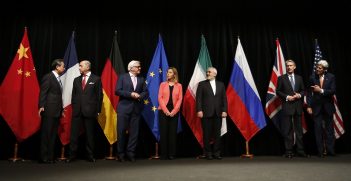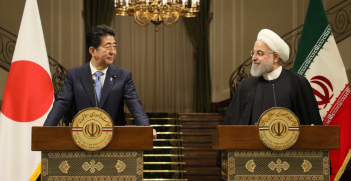Expert Panel-Fellows of the AIIA |
 Hilary Charlesworth FAIIA-Professor, ANU; Director of Centre for International Governance and Justice Hilary Charlesworth FAIIA-Professor, ANU; Director of Centre for International Governance and Justice |  Jocelyn Chey AM FAIIA-Visiting Professor, University of Sydney; former Consul-General in Hong Kong Jocelyn Chey AM FAIIA-Visiting Professor, University of Sydney; former Consul-General in Hong Kong |  James Cotton FAIIA-Emeritus Professor at the University of NSW James Cotton FAIIA-Emeritus Professor at the University of NSW | 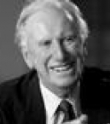 Rawdon Dalrymple AO FAIIA-Former Visiting Professor, University of Sydney; Chairman of ASEAN Focus Group Ltd Rawdon Dalrymple AO FAIIA-Former Visiting Professor, University of Sydney; Chairman of ASEAN Focus Group Ltd |  Graeme Dobell FAIIA-Journalist Fellow, Australian Strategic Policy Institute Graeme Dobell FAIIA-Journalist Fellow, Australian Strategic Policy Institute |  Erika Feller FAIIA-Former UNHCR Assistant High Commissioner for Protection Erika Feller FAIIA-Former UNHCR Assistant High Commissioner for Protection |  Janet Hunt FAIIA-Former Head of the Australian Council for Overseas Aid Janet Hunt FAIIA-Former Head of the Australian Council for Overseas Aid |
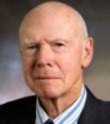 James Ingram AO FAIIA-Former Diplomat and Head of the UN World Food Program James Ingram AO FAIIA-Former Diplomat and Head of the UN World Food Program |  John McCarthy AO FAIIA-Former Ambassador to Japan, Indonesia, the United States, Thailand, Mexico and Vietnam John McCarthy AO FAIIA-Former Ambassador to Japan, Indonesia, the United States, Thailand, Mexico and Vietnam |  Geoffrey Miller AO FAIIA-Former Australian Ambassador to Japan; former Director-General of the Office of National Assessments Geoffrey Miller AO FAIIA-Former Australian Ambassador to Japan; former Director-General of the Office of National Assessments |  Robert O’Neill FAIIA– Former Chichele Professor of the History of War, Oxford University Robert O’Neill FAIIA– Former Chichele Professor of the History of War, Oxford University |  Garry Woodard FAIIA-Former Diplomat and Senior Fellow, University of Melbourne Garry Woodard FAIIA-Former Diplomat and Senior Fellow, University of Melbourne |  Richard Woolcott AC FAIIA-Former Secretary of the Department of Foreign Affairs and Trade Richard Woolcott AC FAIIA-Former Secretary of the Department of Foreign Affairs and Trade | 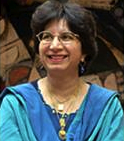 Samina Yasmeen AM FAIIA-Professor of Political Science and International Relations, University of Western Australia Samina Yasmeen AM FAIIA-Professor of Political Science and International Relations, University of Western Australia |
Question: Is Iran Still a Pariah State?

Richard Woolcott FAIIA | Certainly not. It is becoming the most influential state in the Middle East, as Iraq faces continuing instability and religious and ethnic violence. The current very complex and dangerous situation throughout the Middle East stems largely from the failed policies of the US and the UK since 2002, with which the Howard Government foolishly and unnecessarily associated Australia. The situation is compounded by the intransigent policy of Israel and the reactionary policy of Saudi Arabia – both close US allies – and some of the Gulf monarchies. |
 Graeme Dobell FAIIA Graeme Dobell FAIIA | Australia seems determined to find roles for itself in a region of collapsing polities and exploding borders. If we are so determined, then obviously we need the fullest possible access to the thinking of one of the key actors. The war between Sunni and Shia is being waged as a geopolitical struggle between Saudi Arabia and Iran. So Julie Bishop, the first Australian Foreign Minister to go to Iran in 12 years, is doing her job, talking to a key player that holds important keys. |
 Rawdon Dalrymple AO FAIIA Rawdon Dalrymple AO FAIIA | No! When I asked Bibi Netanyahu that question he frothed at the mouth.
bjhjklljbhkhujkjhgijkljhuiolkjhhuiokljhuiouljkjguilkojlkgu;jbgkuhiojkiljmjkhlkjjhijkl;njkjlknkjl;mkjlkm |
 Robert O’Neill FAIIA Robert O’Neill FAIIA | Currently I think Iran is not a pariah state. It is foolish to make a pariah of any state on this planet. That method has been tried many times and it has failed. North Korea virtually retreated into self-inflicted pariahdom and it has taken decades to begin to develop a useful relationship with it. Some factions call for making Israel a pariah and that will certainly not help us on the path to peace in the Middle East. Moderate sanctions, applied with flexibility and attention to the sanctioned party’s responses, are one thing. Cutting off communications, negotiations and ministerial visits is more likely to make matters worse than improve them. Paranoia and “bunker-mentality” will displace reason and hope in a pariah government. In the case of Iran, we are dealing with a powerful, tough and determined nation. I shall be very surprised if we get the kind of nuclear weapons agreement with Iran that we want to have, but treating the country as a pariah is only going to make things worse in many other ways. |

Erika Feller FAIIA | Heaven knows what a “pariah state” is in this day and age. Admittedly through a narrow optic, my direct experience of Iran has been that it has performed pretty credibly as an asylum state. It has hosted one of the biggest refugee populations for many years. Terms of stay have been reasonable, even generous compared to a number of countries, with refugees by and large not confined to camps and able to access some health, education and even work possibilities. The authorities have, in addition, been experimenting with new approaches, built around alternative stay options, which I believe merit careful consideration by other countries further afield! In short, there are a variety of criteria against which states might be measured and all deserve their place in the overall equation. |
 James Ingram AO FAIIA James Ingram AO FAIIA | The short answer is ‘to some extent’. However Iran seems likely to enjoy increasingly normal relationships with significant states even if the recent P5+1 understanding with Iran is not translated into a formal agreement. Israel continues to enjoy the uncritical support of the overwhelming majority of Republican and Democrats in Congress and seeks to prevent finalisation of the recent P5+1 understanding with Iran. However, Israel may have overplayed its hand making it easier for Iran to put the blame on the United States if a formal agreement cannot be reached. Though the United States may continue to impose sanctions in that event it seems probable that otherwise the application of sanctions will wither away even if not formally repealed. Certainly, the visit to Tehran by our Foreign Minister suggests that Australia believes that Iran’s pariah status is likely soon to end. Her initiative is to be applauded.The United States and its allies have worked unsuccessfully for nearly 40 years since the revolution to overthrow the Iranian regime, including support for Saddam Hussein’s aggressive war against Iran and later to deepen its relative isolation through the imposition of punitive sanctions in the name of nuclear non-proliferation. Clearly Kerry has developed a strong personal relationship with his Iranian counterpart and doubtless now accepts that the order that the United States sought to create in the Middle East has collapsed. The region is more and more divided by religion. Secular dictatorships have failed. Islamic State is the latest embodiment of the threat to the West arising among Sunnis. It is not Shia Iran or Iranian Shias who promote terrorism in the West but Sunnis, many of whom have been influenced by Wahhabism in support of which the Saudis have spent many billions in the West and around the world. Because of Saudi Arabia’s key role in OPEC and the continuing dependence of the global (and Australian) economies on Middle Eastern oil the United States finds itself allied with Saudi Arabia in promoting a war against Shias in Yemen while tacitly associated with Iran in support of Shia Iraq’s fight against ISIS. What a mess which is likely to continue to worsen. |
[really_simple_share]
Past Questions
February 24, 2014
Can Australia and Indonesia be Good Friends?
October 26, 2014
Can Australia Remain a Top 20 Nation?
September 17, 2014
Should Australia Deploy Troops to Iraq?
September 9, 2014
Should Australia have Closer Relations with NATO?
July 25, 2014
Are Expectations of Australia’s International Influence Unrealistic?
July 1, 2014
Is Australia Powerless to Help its Citizens Abroad?
June 23, 2014
What are Australia’s Responsibilities in Iraq?
June 10, 2014
Is China Destabilising Asia?
May 9, 2014
Is the US a Dangerous Ally for Australia?
April 28, 2014
Did you find Bob Carr’s ‘Diary of a Foreign Minister’ enlightening?
April 14, 2014
Is Australia’s economic diplomacy succeeding?
April 04, 2014
Is Japan Australia’s best friend in Asia?
March 24, 2014
Three years on, has enough been done on Syria?
More questions >>
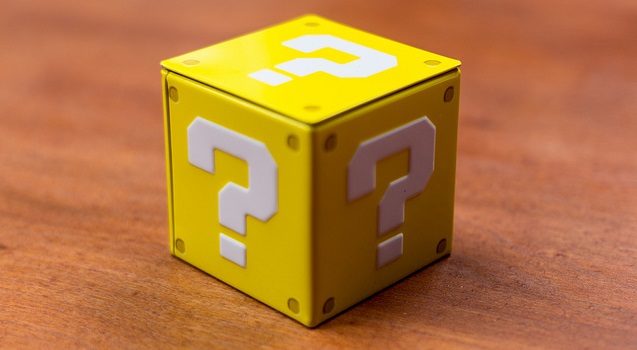
 Rawdon Dalrymple AO FAIIA
Rawdon Dalrymple AO FAIIA















